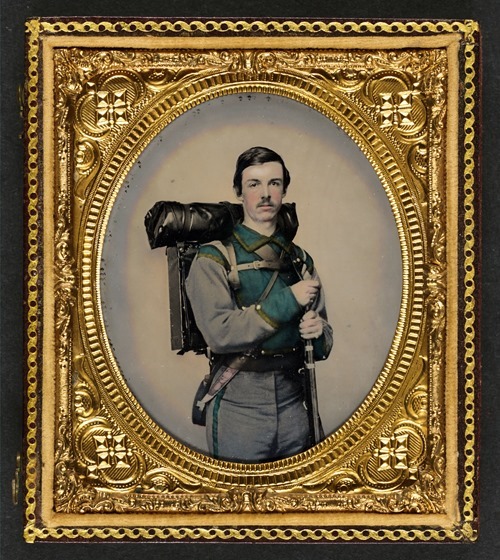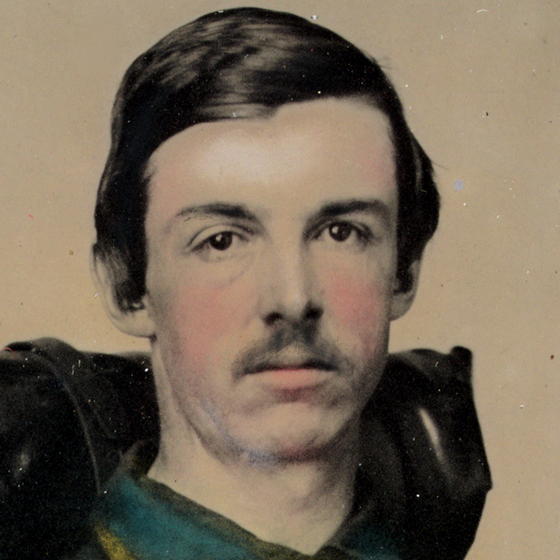Lookout Mountain, Tenn., Thursday, Nov. 19. Reveille woke us at 4 A. M. Slept cold. A heavy frost covers the ground this morning. Marched before the cooks got breakfast ready, so we had to take dry grub. Took the Chattanooga road and marched leisurely down, coming to the end of the valley; the mountains and the river coming together. Our road lay along the bank, and the R. R. several hundred feet above us, sometimes running over a precipice and then over stilty-like bridges. An engine ran by us here. We next left the river and soon entered the hills, winding through the valleys and crossing stony points, which was very slow and laborious as our horses were jaded out and hard to keep up. A few inhabitants were seen but they could not find much to live on. 4th Corps stationed through the valley as guards, each squad already located in neat “shebangs”. Passed Sand Mountain at noon, a force being stationed upon it, the very high bridge having been destroyed near by and not yet commenced to be built. The R. R. is in bad condition and will require a good deal of labor before it will be rebuilt. A large part of it is laid with wooden rails, an iron plate fastened on top. Coal abounds in the hills. We passed a large bed of nitre, out of which saltpetre was manufactured for Confederate States’ use.
Came in sight of Lookout Ridge about 4 P. M., and at sundown we were directly under the enemy’s line, their picket fires burning brightly not more than half a mile off. Did they but have the artillery they could soon shell us out. The roads are very bad, filled with slough holes some of which were bridged. 8 P. M. halted nearly an hour to allow the pioneer corps to repair the roads. Most of the boys made coffee. Hard-tack very scarce. I had none since dinner. After the roads were fixed we moved out and marched about four miles right under the point of the guns which could not be brought to bear on us. We passed by Joe Hooker’s headquarters. It was a very beautiful evening, bright moonlight, and pleasant marching. Came into camp at 11:30 P. M., our horses having nearly given out. When the wagons came up we fed horses and drew crackers, but I was not as hungry as sleepy, so I laid down in the open air with Point Lookout frowning in full view, on which is a battery of heavy guns that at any moment could hurl terror to our Corps.













